People With Disability : For Enhanced Participation In Political, Public Life
- Par Kimeng Hilton
- 27 sept. 2024 13:34
- 0 Likes
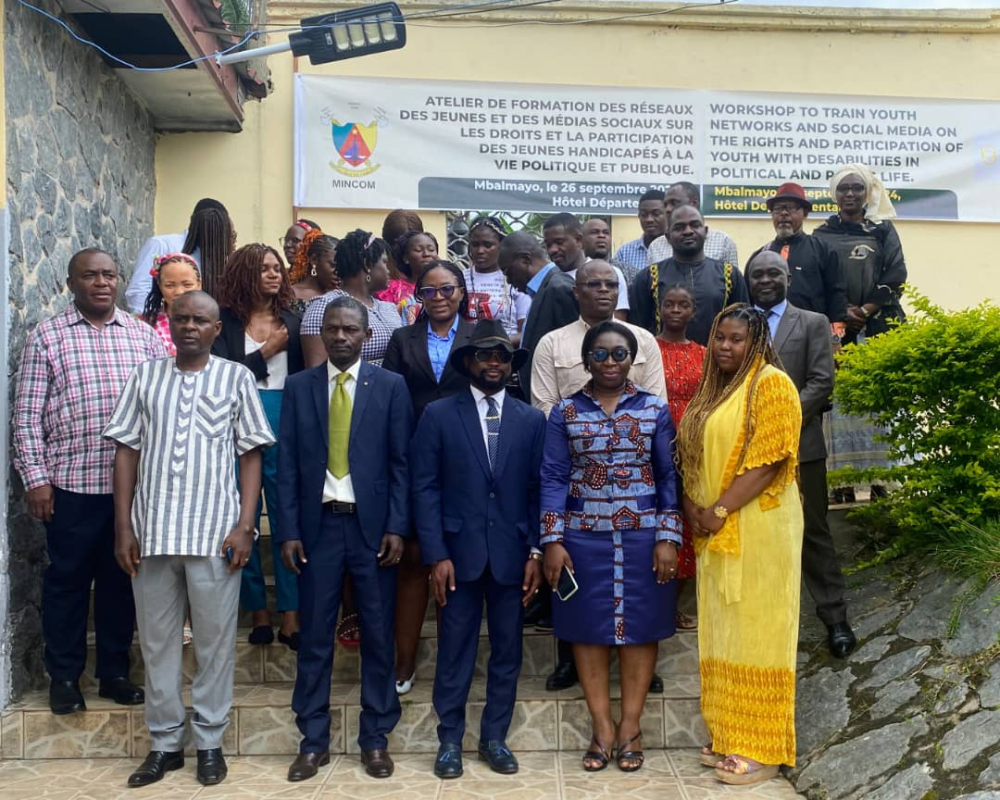
The Ministry of Communication and the Non-governmental Organisation, Sightsavers, held a workshop for media people in Mbalmayo on September 26, 2024.
In Cameroon, the low political participation of young people with disabilities remains quite worrying despite the efforts made by the Government and its partners to promote it. However, people with disabilities who are full-fledged Cameroonian citizens with equal rights provided for in the Constitution. These include, for example, the right to vote and the right to participate in political affairs.
Persistent Barriers
However, significant obstacles remain to the right to political participation of young people with disabilities. In fact, the practical provisions are not always effective to allow them to truly enjoy these rights. For example, there are gaps between the measures provided for by law and policies and their effective application, limited access to polling stations, and a lack of information on rights and political participation.
Raison d’etre of Training
It is for this reason that the Ministry of Communication and the international charity, Sightsavers, on Thursday September 26, 2024 in Mbalmayo on the outskirts of Yaounde organised a one-day training. The Workshop for Youth and Social Media Networks on the Rights and Participation of Young People with Disabilities in Political and Public Life included journalists, bloggers, disabled youth and members of the Inclusive Society for People with Disability. According to Kisito Ngankak, Director of Development of Private Media and Advertising in the Ministry of Communication, the objective of the workshop was get media practitioners closer to people with disabilities in order to better understand and tell their stories.
Paradigm Shift Needed
On the state of communication on the rights and participation in politics and public life by young disabled people in Cameroon, Kisito Ngankak listed the absence of Braille newspapers and the quick gathering, processing and publication of news on the Internet which leaves the disabled behind. Thus, the need to adopt a new manner of disseminating information and news that takes into consideration the needs of the disabled. He also mentioned the absence of norms on access to information for the disabled; and the low visibility of the activities of the disabled in the media.
Progress Made
However, Kisito Ngankak noted that some efforts have been made to facilitate access to information by the disabled. Like the Head of State’s broadcasts on television which are now interpreted through sign language for people with hearing impairment. He announced that the Ministry of Communication and the Ministry of Post and Telecommunication are currently preparing a policy document on communication for people with hearing/listening challenges. In addition to stepping up sensitisation on the white cane used by people with visual impairment. Above all, Kisito emphasized the need for the public to change its attitude towards the disabled.
Despite Challenges
Mvondo Boniface, Programme Officer of Inclusive Society for People with Disability said the challenges of disabled people centre on how to actively participate in political and public. He announced that some 8,500 disabled have registered on the electoral roll, thanks to efforts of the platform. Similarly, the Inclusive Society for People with Disability has assisted 500 disabled people to acquire National Identity Cards and 406 birth certificates. While 500 trained in various areas, and 12 people were elected as municipal councillors – including two women – and alternate senator.
Cooperation With Local Governments
Mvondo said since its creation in 2011, the Inclusive Society for People with Disability has signed cooperation partnerships with some councils and undertaken sensitization on how to work with the disabled. Mvondo added that as a result, disabled people in the country are now treated differently as they are considered as people with something to contribute to society’s improvement. Also, this category of people now plays an increasing role in politics and leadership development as greater access to polling stations has been facilitated for them.
Reluctance To Work With Disabled
Nevertheless, disabled people in Cameroon still face challenges like low level of education, lack of financial autonomy, low level of training in leadership, rights, democratic process; as well as low self-esteem. Mvondo Boniface said some people – for their egoistic interests – were still reluctant to work with disabled people.
International Legal Instruments
Dr Ayo Martin Paul D. of the Ministry of Social Affairs listed different international instruments that seek to promote the rights of the disabled. Like the United Nations Convention on the Rights of Persons with Disabilities, the African Charter on Human and People’s Rights, and the Marrakesh Treaty to Facilitate Access to Published Works for Persons Who Are Blind, Visually Impaired or Otherwise Print-disabled, which is simply referred to as the “Marrakesh Treaty.” Marrakesh Treaty was ratified by Cameroon in December 2021.
Local Statutes
Nationally, there are statutes, laws and decrees enshrining the rights of the disabled. For example, there is the National Policy on the Protection of the Disabled; the Law of January 18, 1996 amending the Constitution; the Law of 2010 on the Protection of Disabled; the Decree of July 18, 2017 on organising the Ministry of Social Affairs, putting in place a policy on the disabled.
Special Needs Of Disabled
According to Dr Ayo, Article 22 of the Decree of 2010 provides for taking into account the rights, advantages and preferential treatment of the disabled to facilitate their access to training, transport, information and communication, sports, and socio-cultural activities. Similarly, the decree insists on labelling goods in Braille, interpretation of television programmes through sign language, and the equipment of public halls with magnetic earrings. And facilitating access and accessibility to schools and public buildings for the disabled. Not forgetting inclusive education.
The Place Of Albinos
Dr Ayo clarified that albinos in Cameroon are only considered as disabled if their sight challenges are serious; not because of their skin colour. “Good laws exist in Cameroon on the protection of the rights of the disabled, but their implementation still lags behind,” Dr Ayo Martin noted.
Deficiency, Environmental Barriers
The Programme Officer of Sightsavers Cameroon, Sandra Rimoh Dossou, said Cameroon has ratified the United Nations Convention on the Rights of Persons with Disabilities. But challenges remain – such as the marginalisation of disabled women, especially those from minority groups; the needs of the disabled often ignored by the authorities. Dossou stressed that disability has to do with two things – deficiency and environmental barriers.
Odette Juimo Not Left Behind
She restated Sightsavers’ catchphrase, “Leave no one behind.” Which is a call to fight discrimination and the stigmatisation of the disabled. As well as promote the enhanced participation of the disabled in political and public life as a whole. Dossou mentioned the case of Mrs. Odette Juimo, a blind lady, who is an elected councillor with Yaounde IV Subdivisional Council.
For Enhanced Political Role
Tombi a Sanam Olivier, is President of the executive committee that manages Inclusive Society for People with Disability. He is also a youth subsection president with the ruling Cameroon People’s Democratic Movement, CPDM party in the Centre Region. Tombi spoke on stigmatization and the financial challenges faced the disabled. As well as challenges like inadequate sensitization and understanding of the problems of the disabled; inaccessible information and communication; inadequate disability public facilities; poor support; the electoral law not specifically insisting on the disabled being included in electoral lists…
A Better World At Grassroots
Richard Alain Ndoumbe Ndoumbe of the Ministry of Decentralisation and Local Development recalled the measures taken by government on the participation of young, disabled people in decentralisation activities as part of the project, ‘A Better World.” Ndoumbe Ndoumbe said everyone – including the disabled – can make proposals to their local government on how to improve their lot, and seek oversight of local activities. While duties and resources have been devolved to local governments by various ministries.
Neighbourhood, Village Committees
The Ministry of Decentralisation and Local Development on July 19, 2023 created neighbourhood or village committees to help people participate in the activities of their local councils. The decision specifically stresses the inclusion of the disabled in the executive of neighbourhood or village committees. The pilot phase of the scheme took off in the Littoral and North Regions, with other regions gradually coming on board. As a result, 33 councils in the country have created over 700 neighbourhood or village committees which receive funding from the State.
Situation In Cameroon
According to the organizers of the training, there are challenges of ignorance or poor knowledge of texts regulating the promotion and protection ...
Cet article complet est réservé aux abonnés
Déjà abonné ? Identifiez-vous >
Accédez en illimité à Cameroon Tribune Digital à partir de 26250 FCFA
Je M'abonne1 minute suffit pour vous abonner à Cameroon Tribune Digital !
- Votre numéro spécial cameroon-tribune en version numérique
- Des encarts
- Des appels d'offres exclusives
- D'avant-première (accès 24h avant la publication)
- Des éditions consultables sur tous supports (smartphone, tablettes, PC)






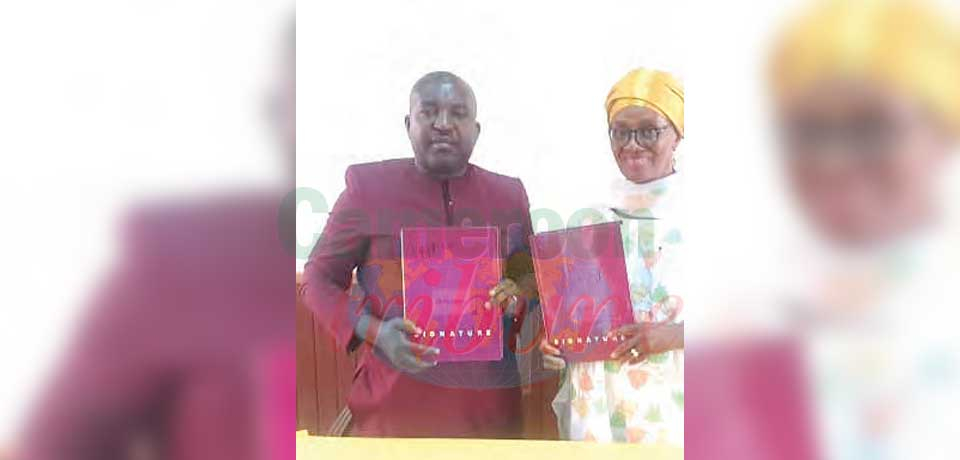
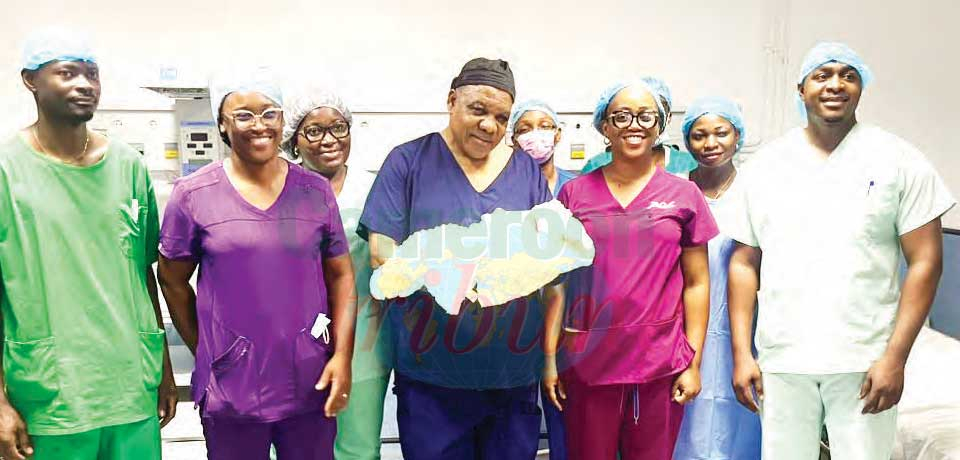
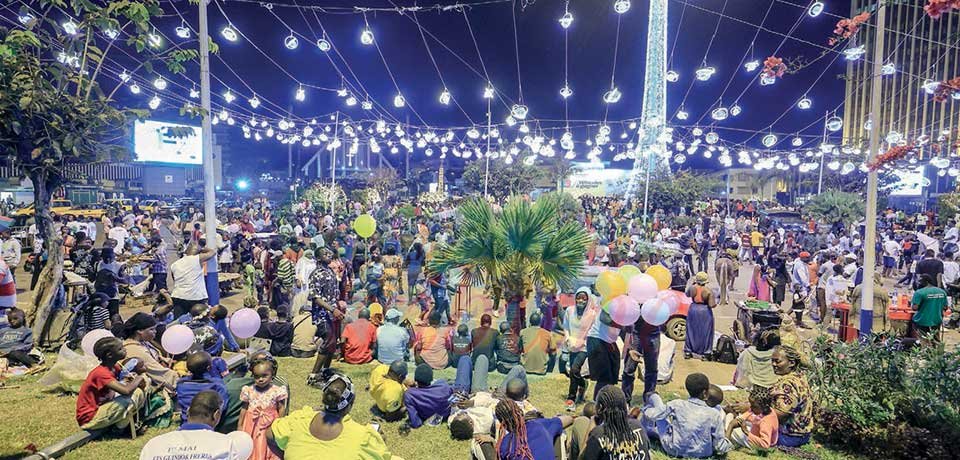
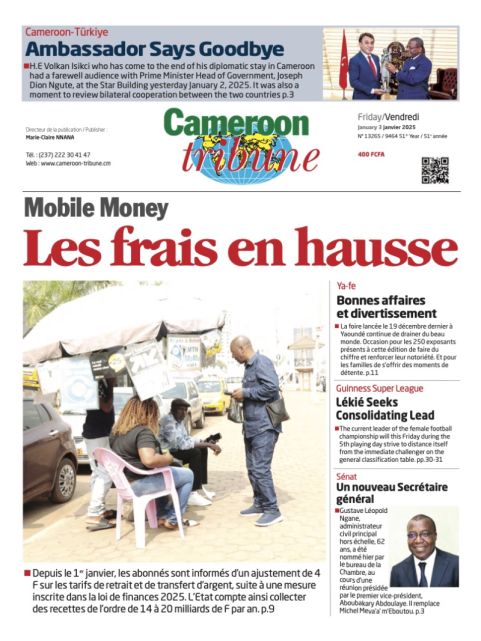




Commentaires